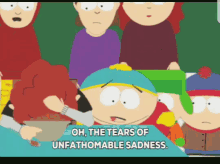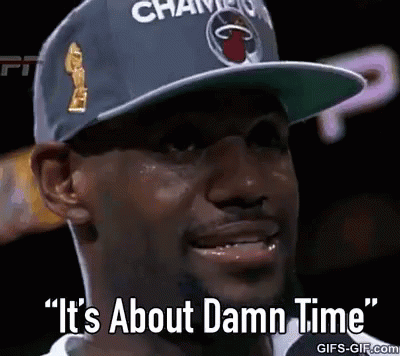Spyxos
Gold Member

“To clarify, ad rates are really only down around 30-40% industry-wide. That’s still bad, but not what the hyperbole out there suggests. Not nearly as bad as the rate decline back in 2000 after the dot-com bust, back when I was first getting started. From an ad rate perspective, the level of decrease now is more akin to what happened after the 2008 crash. It should also be noted that even though ad rates are down 40% from last year, they are still way up compared to what they were at any time before 2015. The ad industry has come a long way.
Ad rates are not the problem. No one wants to admit it, but traffic is the problem. It’s also not AI, though there’s a lot of hype and fear about it. That’s an excuse.
The real reason companies like Vice and Buzzfeed are going out of business (and expect a lot more very soon) is that they no longer have any readers. And they no longer have any readers because web traffic is now entirely controlled by a small handful of tech companies. Around September 2022, those tech companies decided to stop sending traffic to news publishers.
Facebook is the biggest one. They’ve all but cut off publishers entirely. Many publishers got as much as 40 – 50% of their traffic from Facebook. That ended in late 2022. No one and I mean no one; at least not if they are honest, gets Facebook traffic any more. Meta has tweaked their algo [sic] to make sure users never leave the Facebook app.” The other 60% of traffic for nearly every publisher came from Google. And now that is gone too. Look at any Google search result. A year or two ago, 80% of a Google results page would have contained links to publishers. Now it’s often not even 20%.”
“There’s no denying that things are a mess and only getting worse. I still remember when I first began noticing the shift.
It was late in my tenure as CinemaBlend’s CEO, and we’d sent a writer to cover a press junket with Clint Eastwood. The reporter came back excited, claiming that in the middle of the junket, Clint Eastwood went on a crazy racist rant.
The reporter wrote up their story, in which they talked in detail about what a racist Clint Eastwood was and how he’d said horribly racist things in a hate-filled tirade.
I reviewed the article with my Editor-in-Chief before we published it since this was a big and intense accusation at that time. We both noticed something strange: the article had no direct quotes from Clint Eastwood in it.
We reached out to the reporter and asked to listen to their audio recording of what Clint Eastwood said.
We listened to it twice; we couldn’t find the racist tirade.
We went back to the reporter; they gave us a time code, and so we listened again.
“We went back to the reporter and asked if that was it. The reporter confirmed that it was. We had a 1000-word story written about Clint Eastwood’s racist tirade, and all we had to back up that claim was Clint Eastwood saying he’s friends with people of color. We killed the story. However, there were dozens of other journalists at that junket. They all wrote the racist tirade story, and their outlets published it. All of them. Not one of those stories published by our competitors contained an actual quote.
Here’s what Clint Eastwood said: “I have a lot of black friends.” That’s it. It was in the context of how much he’d enjoyed working on the movie, and he sort of said it as an offhand comment.”
It was late in my tenure as CinemaBlend’s CEO, and we’d sent a writer to cover a press junket with Clint Eastwood. The reporter came back excited, claiming that in the middle of the junket, Clint Eastwood went on a crazy racist rant.
The reporter wrote up their story, in which they talked in detail about what a racist Clint Eastwood was and how he’d said horribly racist things in a hate-filled tirade.
I reviewed the article with my Editor-in-Chief before we published it since this was a big and intense accusation at that time. We both noticed something strange: the article had no direct quotes from Clint Eastwood in it.
We reached out to the reporter and asked to listen to their audio recording of what Clint Eastwood said.
We listened to it twice; we couldn’t find the racist tirade.
We went back to the reporter; they gave us a time code, and so we listened again.
“We went back to the reporter and asked if that was it. The reporter confirmed that it was. We had a 1000-word story written about Clint Eastwood’s racist tirade, and all we had to back up that claim was Clint Eastwood saying he’s friends with people of color. We killed the story. However, there were dozens of other journalists at that junket. They all wrote the racist tirade story, and their outlets published it. All of them. Not one of those stories published by our competitors contained an actual quote.
Here’s what Clint Eastwood said: “I have a lot of black friends.” That’s it. It was in the context of how much he’d enjoyed working on the movie, and he sort of said it as an offhand comment.”
Early on, when GFR started breaking really big stories, the Editor-in-Chief of one of our biggest competitors contacted me and demanded that I tell him who our source was and give him that source’s contact information. Journalism 101 is, of course, don’t reveal your source. So I declined. It was then insinuated to me that if I did not comply, he and his friends in the industry would do everything they could to humiliate and discredit GFR publicly. I continued to decline, and for the most part, that person and his friends have done their best to follow through on that threat.
I assume similar tactics are being used against Inside The Magic and some of the other very few journalists out there actually doing their job by working on original reporting.

Interview: Most Entertainment News Sites to Go Broke By Mid 2024, Says CinemaBlend Founder
"No one wants to admit it, but traffic is the problem. The real reason companies like Vice and Buzzfeed are going out of business (and expect a lot more very soon) is that they no longer have any readers."
 clownfishtv.com
clownfishtv.com
Last edited:







